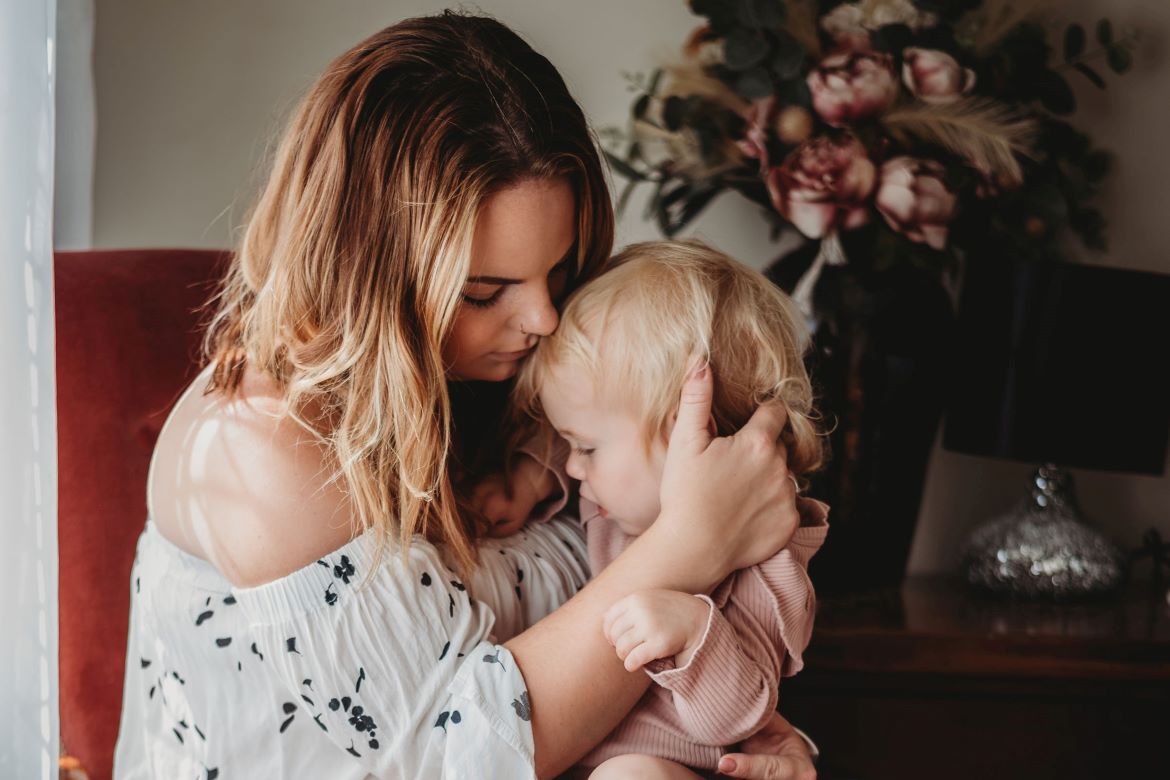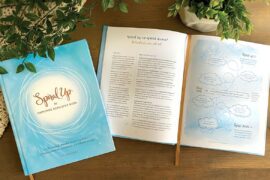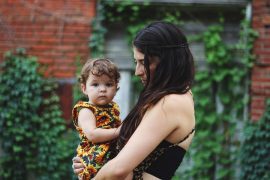By Jessie Stern, Ph.D. and Rachel Samson, M.Psych
“The most precious gift we can offer others is our presence. When mindfulness embraces those we love, they bloom like flowers.”
– Thich Nhat Hanh
When I was a child, I told my mother all manner of things-what I thought about the colour green, the dream I had about the big volcano, my most outlandish ideas (including the plan to build a hot air balloon with my best friend to circumnavigate the globe together). Often, when something was important to me-even if ridiculous from an adult’s perspective-she would pause whatever she was doing, we’d sit on the kitchen stools, and she would listen to what I had to say. Her presence was full and felt, notable in what was absent: she didn’t interrupt, correct, lecture, or give advice. She allowed long silences while I gathered myself. Occasionally she took notes and gave them to me in case I wanted to think over things later. Sometimes she asked questions or reflected back something I said. But mostly, she listened.
As an adult, I recognised my mother’s quiet attention for what it was: a gift. It gave me a lasting capacity to trust others and to feel confident in my own voice, and it also nourished a thirst to hear others’ views-a curiosity about their stories. And if I had to name what it was she was doing, I would call it deep listening.
Deep listening goes by many names in many cultures, including contemplative spiritual traditions and indigenous cultures around the world.
In Aboriginal Australian communities, deep listening is sometimes called dadirri. Dr. Miriam-Rose Ungunmerr-Baumann, an Aboriginal writer and elder, explains: “Dadirri is inner, deep listening and quiet, still awareness… It is something like what you call ‘contemplation.'”1 According to Zen Master Thich Nhat Hanh, “Deep listening is the kind of listening that can help relieve the suffering of another person. You can call it compassionate listening. You listen with only one purpose: to help him or her to empty his heart. Even if he says things that are full of wrong perceptions, full of bitterness, you are still capable of continuing to listen with compassion. Because you know that listening like that, you give that person a chance to suffer less.”2 Central to these ways of defining deep listening is a sense of presence, inner stillness, openness, and mindful attention to what the other communicates in their body, speech, and silence.
What Is Its Value?
Deep listening nourishes the recipient, the listener, and the relationship. In Western therapeutic practice, holding space for a client to share their stories and struggles, give voice to things that may have been silenced, and explore difficult emotions can be transformative, a catalyst for healing and growth.3
In the context of parent-child relationships, deep listening is a central component of “mindful parenting“,4 because of its role in identifying and responding sensitively to children’s needs.5,6 Decades of evidence shows that attuned, sensitive, and emotionally available caregiving promotes children’s healthy development, secure attachment, and mental health.7 The founders of the Circle of Security program convey the feeling of listening deeply to one’s child in a simple phrase: “I am here, and you are worth it.” This is a powerful reminder to parents that our presence and attention can be instrumental in cultivating a child’s sense of self-worth and mental health.8 We have only to recall the last time that we felt truly listened to in order to conjure that same sense of worthiness-Wow, my voice matters; I am someone worth listening to.
But deep listening is not just a gift for the recipient; it is also a boon for the listener.
Aboriginal writer Dr. Miriam-Rose Ungunmerr-Baumann recounts that “When I experience dadirri, I am made whole again.” Thich Nhat Hanh observes the benefits of deep listening for enriching and sustaining our relationships: “The roots of a lasting relationship are mindfulness, deep listening, and loving speech.” This wisdom is supported by evidence from research with married couples demonstrating that when there is an absence of loving speech and responsive listening-when couples engage in criticism, contempt, stonewalling, and defensiveness-they are more likely to divorce.9 Deep listening, then, is an investment-in our relationships, in intimacy, and understanding other people. We stand to learn so much about our children, partners, ancestors, community members, and those we perceive as “other” through this practice.
Listening Is an Art
But deep listening doesn’t come naturally to all of us. It may even seem counter-intuitive in our culture of quick fixes and endless scrolling for fast advice. Brother Phap Huu, a Buddhist monk and an Abbott of Plum Village monastery, explains that “deep listening and loving speech have always been part of our society, from spirituality to psychology to science.” Yet, he says, “what we see, especially today, is that to listen is such an art. When we actually have to be there to listen, a lot of people don’t have that capacity because they don’t have the time and they are not trained. It also goes back to our upbringing. If the parent doesn’t have the time to just sit there and share with the child then they will lose this element in the family, they will lose this element in that child’s upbringing.” Thus, for those of us who were not listened to as children, or who otherwise struggle to be present, this type of listening takes practice.











